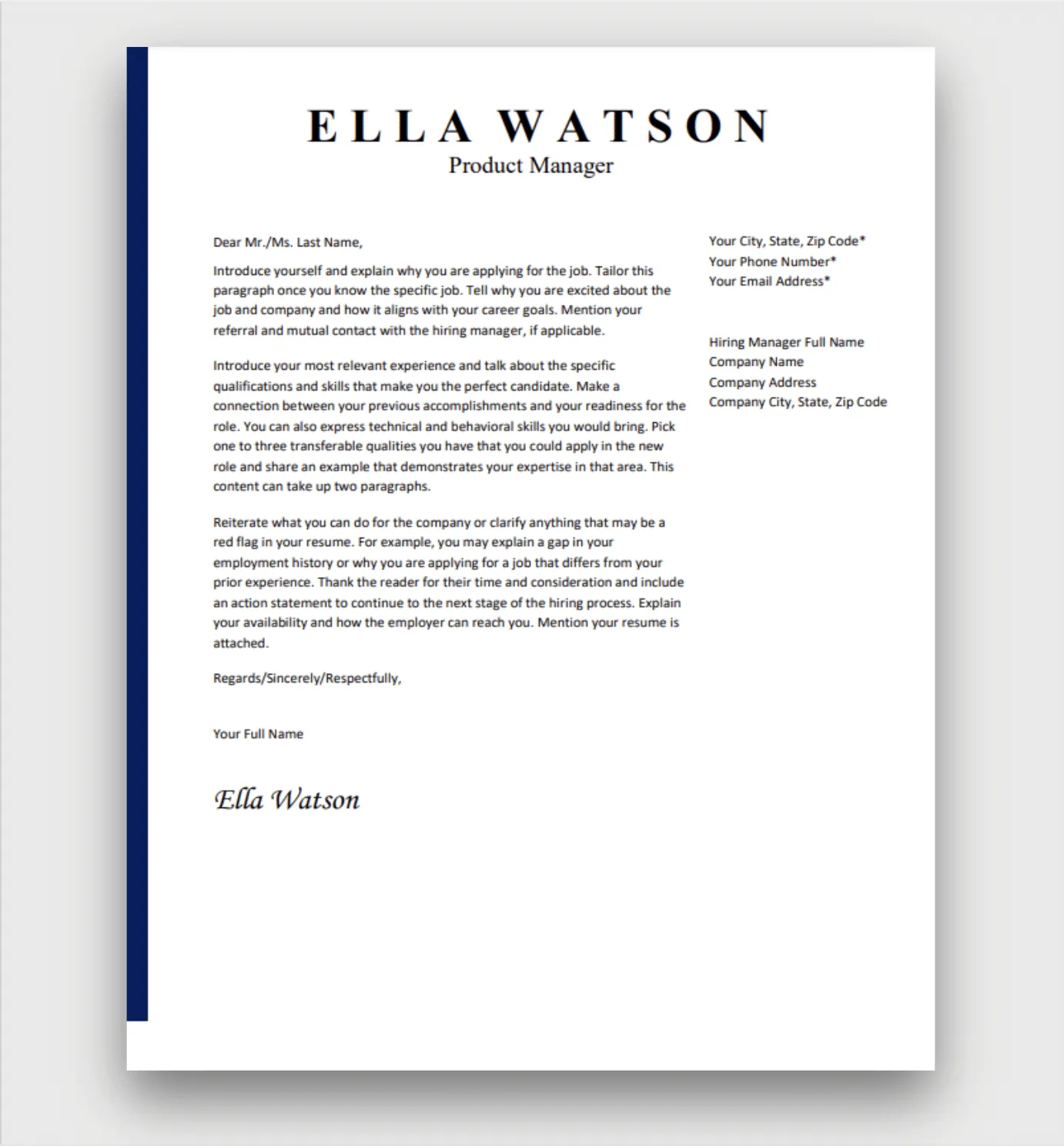Crafting a Cover Letter that Gets You Hired
In today’s competitive job market, a well-crafted cover letter is no longer optional; it’s essential. A cover letter serves as your personal introduction to a potential employer, offering an opportunity to showcase your personality, skills, and enthusiasm in a way a resume alone cannot. This guide will walk you through the process of writing a cover letter that not only gets noticed but also helps you land your dream job. Remember, the goal is to make a strong first impression and convince the hiring manager that you are the perfect fit for the role. Let’s begin crafting a cover letter that truly stands out.
Understanding the Purpose of a Cover Letter
Why Cover Letters Matter in Job Applications
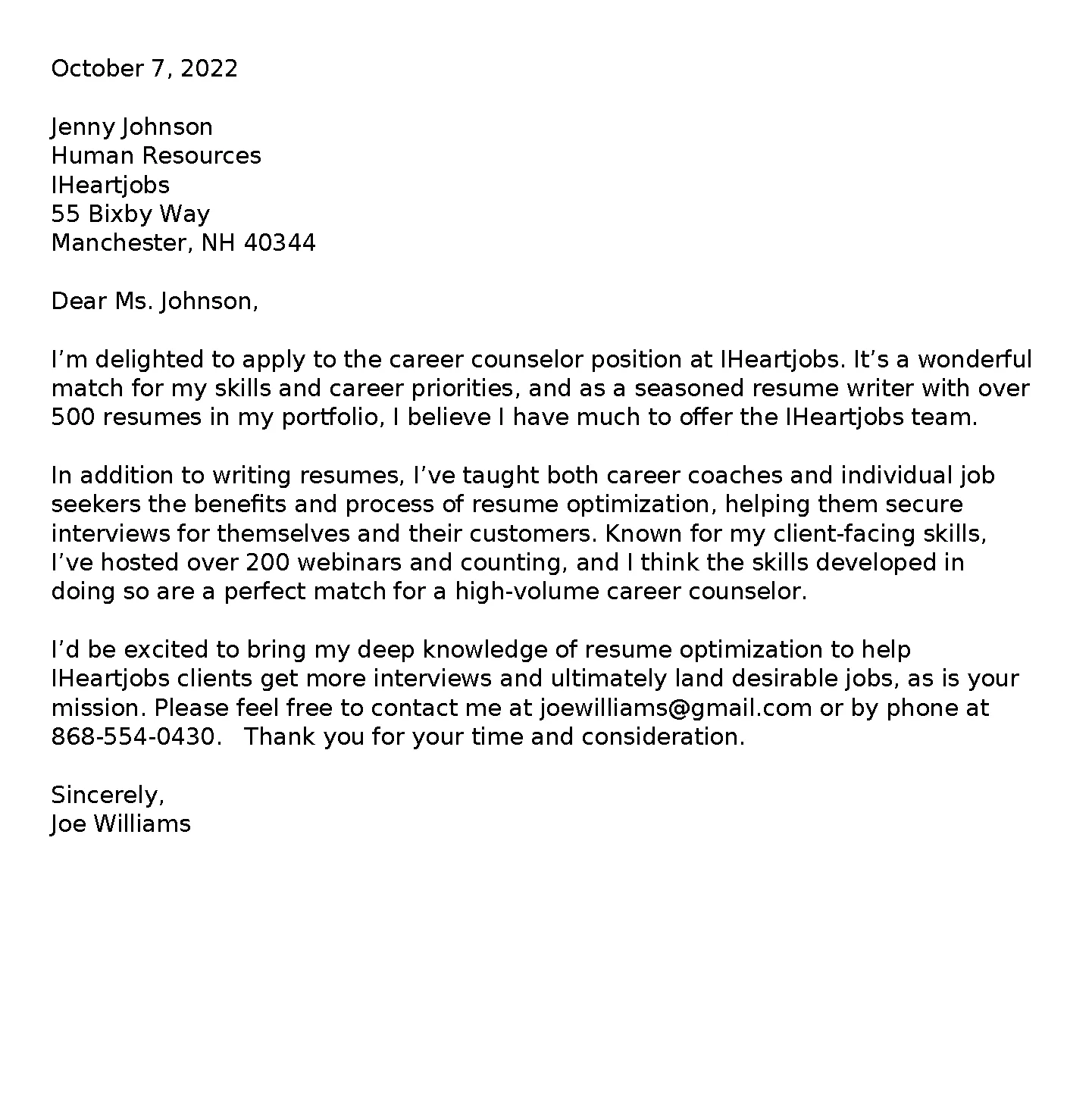
A cover letter provides context to your resume. While your resume lists your qualifications and experiences, your cover letter explains why you are interested in the specific position and company. It allows you to address the employer directly, express your enthusiasm, and highlight the skills and experiences most relevant to the job. A well-written cover letter can significantly increase your chances of getting an interview by demonstrating your communication skills, attention to detail, and genuine interest in the opportunity. This is your chance to shine and make a lasting impression.
The Role of a Cover Letter in Showcasing Your Skills
Cover letters are your chance to demonstrate how your skills align with the job requirements. It’s not enough to simply list your skills; you need to show how you’ve used them to achieve results. Use specific examples from your past experiences to illustrate your abilities. For instance, instead of saying ‘Proficient in project management,’ you could write, ‘Successfully managed a team of five in a recent project, delivering the product ahead of schedule and under budget.’ This level of detail and evidence makes your application more compelling and memorable. The cover letter becomes a narrative of your professional journey, highlighting your strengths and potential.
Essential Elements of a Cover Letter
Contact Information and Date
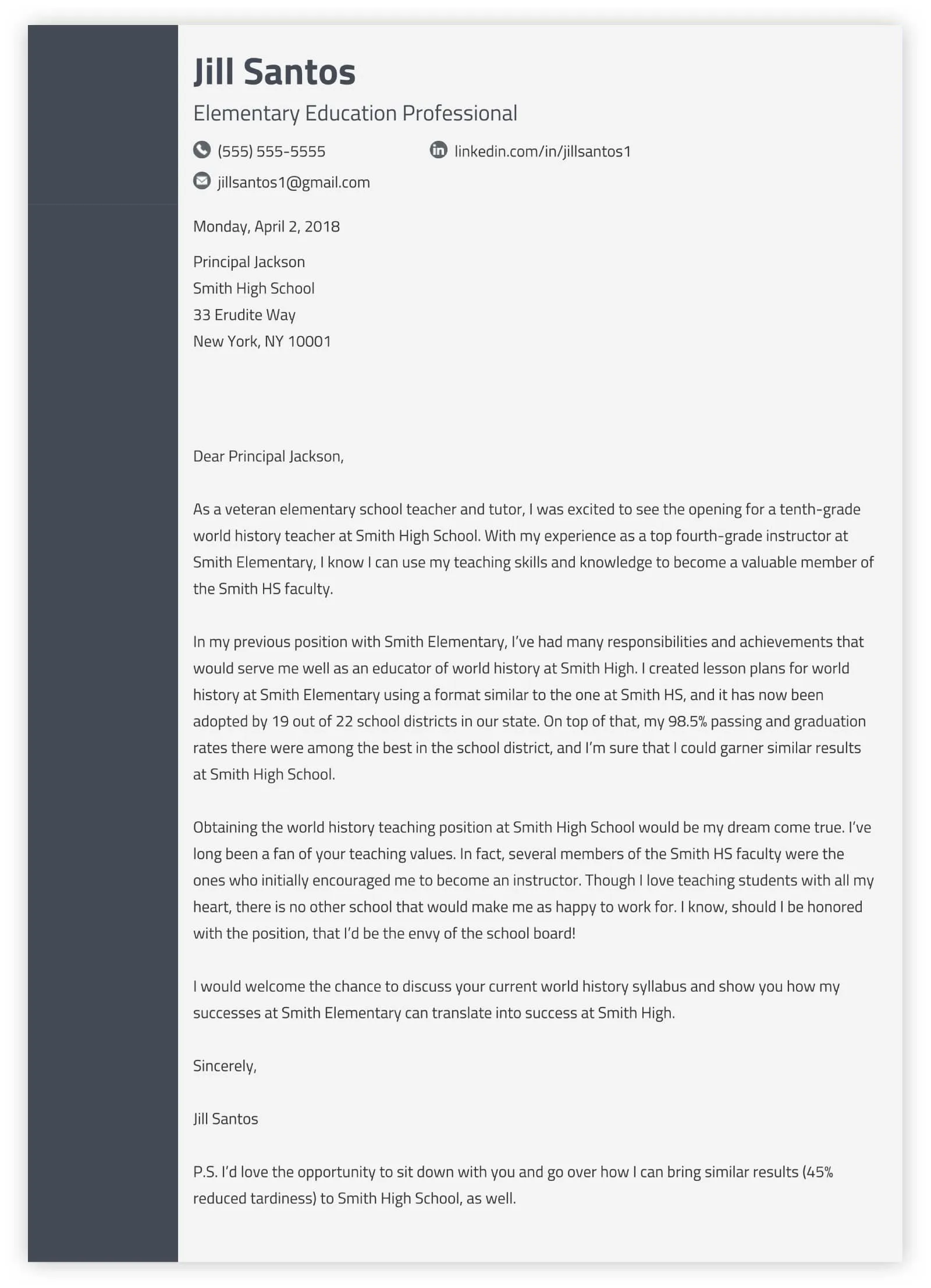
Start your cover letter with your contact information, including your name, address, phone number, and email address. Include the date below your contact information. Make sure your email address is professional. Always address the letter to the hiring manager by name if possible; this shows that you’ve done your research and taken the time to personalize your application. If the hiring manager’s name is unavailable, use a professional salutation, such as ‘Dear Hiring Manager.’
Greeting the Hiring Manager
A personalized greeting is crucial. Start your cover letter by addressing the hiring manager by name (e.g., ‘Dear Mr. Smith’). Research the company and the specific person to whom you are addressing the letter. If you can’t find a specific name, use a professional salutation like ‘Dear Hiring Manager’. A personalized greeting shows initiative and attention to detail, setting a positive tone from the start. Avoiding generic greetings makes a great first impression.
Writing a Compelling Opening Paragraph
Your opening paragraph is your chance to grab the reader’s attention. State the position you’re applying for and where you found the job posting. Then, briefly explain why you are interested in the role and the company. This paragraph should hook the reader and make them want to learn more. Consider including a brief statement about your key qualifications or a compelling achievement that aligns with the job requirements. Keep it concise, enthusiastic, and focused on why you are a great fit for the role, making the reader eager to continue reading.
Highlighting Your Skills and Experience
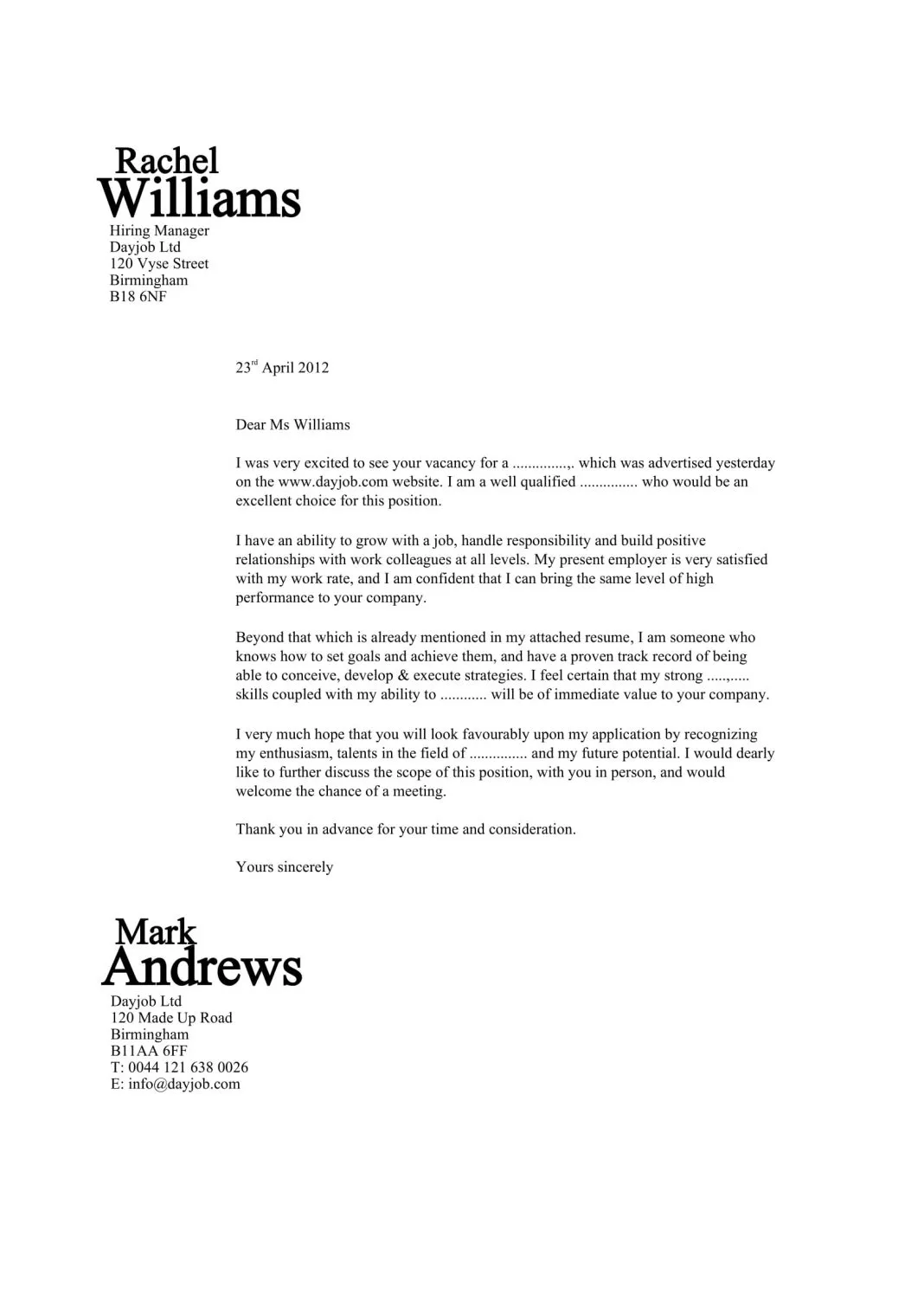
The body of your cover letter should showcase how your skills and experience align with the job requirements. Review the job description carefully and identify the key skills and qualifications the employer is looking for. Then, provide specific examples from your past experiences that demonstrate these skills. Use action verbs to describe your accomplishments and quantify your achievements whenever possible. This section is your opportunity to connect your past successes to the needs of the role. This section is the core of your letter, so spend time crafting this section.
Showcasing Your Achievements
Focus on achievements rather than just listing responsibilities. Describe your accomplishments using the STAR method (Situation, Task, Action, Result). For example, instead of saying ‘Managed social media accounts,’ you could write ‘Increased social media engagement by 30% within six months by implementing a new content strategy and using targeted advertising.’ Use concrete examples and quantifiable results to demonstrate your impact and value. Your achievements are what set you apart from other applicants, so make sure they stand out.
Quantifying Your Accomplishments
Quantify your achievements to make them more impactful. Use numbers, percentages, and data to illustrate your successes. For instance, instead of saying ‘Improved customer satisfaction,’ say ‘Improved customer satisfaction by 15% through implementing a new customer service protocol.’ Numbers provide concrete evidence of your abilities and make your achievements more compelling and memorable. Always aim to quantify your achievements wherever possible, providing clear evidence of your impact.
Expressing Enthusiasm and Fit
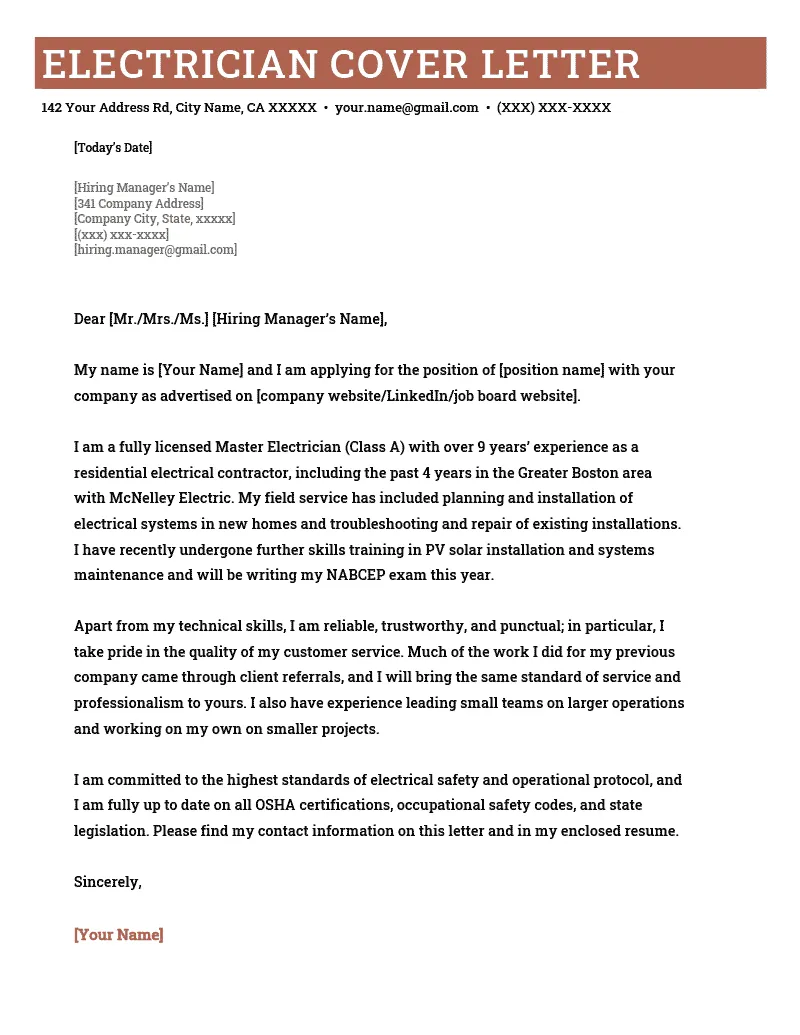
Throughout your cover letter, express your enthusiasm for the role and the company. Explain why you are excited about the opportunity and what specifically attracts you to the organization. Demonstrate that you understand the company’s mission, values, and goals. Your enthusiasm should be genuine and reflect your interest in the role. Show how your values align with the company culture. Your enthusiasm will make you stand out from other candidates.
The Closing Paragraph and Call to Action
In your closing paragraph, reiterate your interest in the role and thank the hiring manager for their time and consideration. Include a call to action, such as, ‘I look forward to the opportunity to discuss my qualifications further in an interview.’ Offer your contact information again, making it easy for the hiring manager to reach you. End on a positive note, leaving a lasting impression. Your closing should leave the reader with a sense of excitement.
Formatting and Proofreading Your Cover Letter
Cover Letter Formatting Best Practices
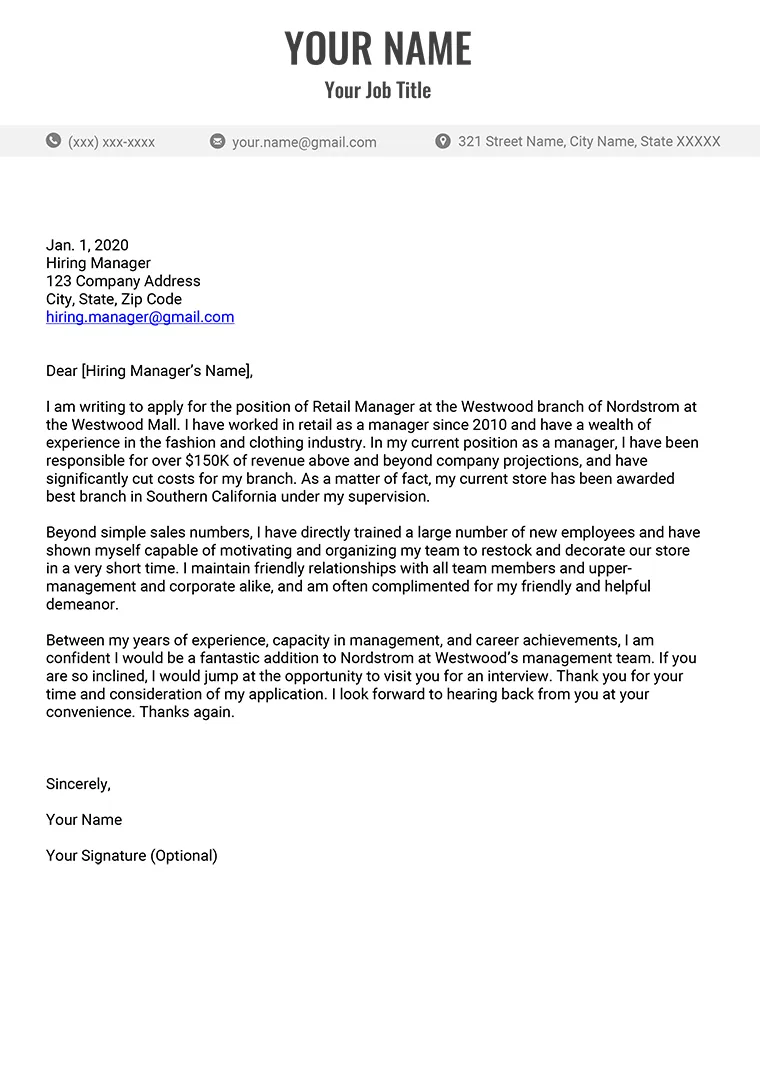
Formatting your cover letter is just as important as the content. Use a professional font like Arial, Calibri, or Times New Roman. Keep the font size between 10 and 12 points for readability. Use single-spacing within paragraphs and double-spacing between paragraphs. Use a clear and concise layout with appropriate headings and subheadings to make it easy to read. Ensure your margins are standard (1 inch on all sides) and that your letter is no longer than one page. A well-formatted cover letter is easy to read and shows attention to detail.
Proofreading for Errors
Proofreading your cover letter is essential. Errors, such as typos and grammatical mistakes, can immediately damage your credibility. Always proofread your letter multiple times, and ask someone else to review it as well. Use spell-check and grammar-check tools, but don’t rely on them completely. Read your cover letter out loud to catch any awkward phrasing or unclear sentences. Ensure that all contact information is correct. A polished, error-free cover letter demonstrates professionalism and attention to detail.
Tailoring Your Cover Letter
Researching the Company and Role
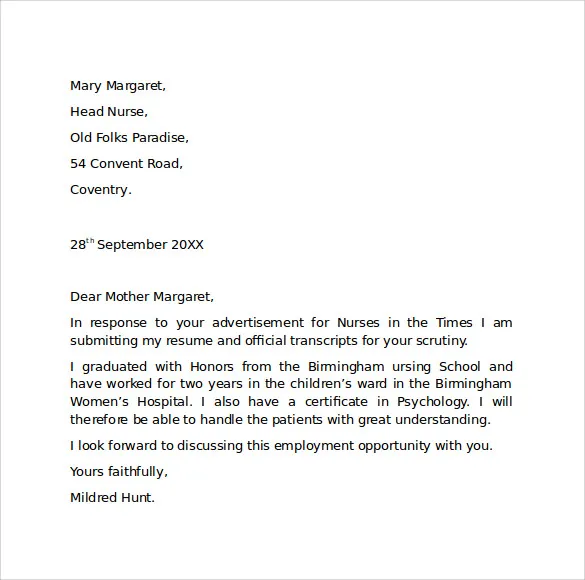
Before writing your cover letter, research the company and the specific role you are applying for. Visit the company’s website to learn about its mission, values, and recent news. Understand the job description thoroughly and identify the key requirements and responsibilities. Tailor your cover letter to highlight the skills and experiences most relevant to the specific job. This demonstrates your genuine interest in the role and your understanding of the company’s needs. This level of personalization increases your chances of getting noticed.
Customizing Your Letter for Each Application
Never send a generic cover letter. Customize each cover letter to match the specific job and company you are applying to. Highlight the skills and experiences most relevant to the role. Use the keywords from the job description in your cover letter. Show how your qualifications meet the specific requirements of the position. Personalized cover letters demonstrate that you have taken the time to understand the role and are genuinely interested in the opportunity. This attention to detail will help you stand out from other applicants.
Avoiding Common Cover Letter Mistakes
Generic Cover Letters
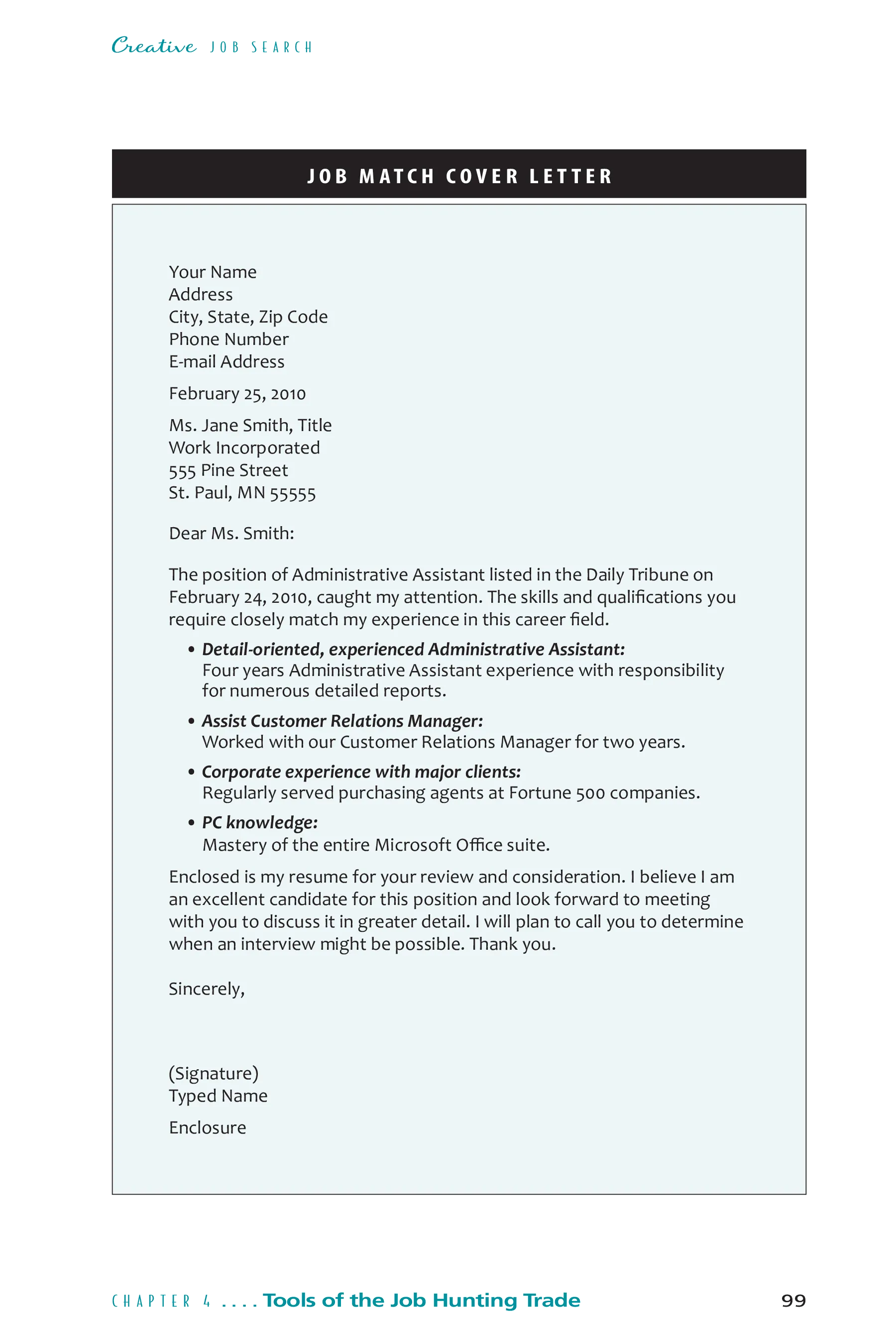
Avoid using generic cover letters that could apply to any job. Tailor your cover letter to each position, demonstrating your understanding of the role and the company. Generic letters show a lack of effort and interest, reducing your chances of getting hired. Employers want to see that you’ve done your research and are genuinely interested in the opportunity. Customize your letter to highlight relevant skills, experiences, and achievements that match the job description.
Typos and Grammatical Errors
Typos and grammatical errors are a major turn-off for hiring managers. Proofread your cover letter carefully to eliminate any mistakes. Use spell-check and grammar-check tools, but also read your letter out loud to catch any errors that the tools might miss. Ask someone else to review your cover letter to ensure accuracy. Errors can make you seem careless and unprofessional. A clean, error-free cover letter demonstrates your attention to detail and professionalism, significantly improving your chances of success.
Using Excessive Jargon
Avoid using excessive jargon or buzzwords that might confuse the hiring manager. While it’s important to use industry-specific terms, ensure that your language is clear and easy to understand. Overusing jargon can make your cover letter sound pretentious and may not effectively communicate your skills and qualifications. Write in a clear and concise manner, using straightforward language that highlights your key strengths and experiences. Clarity is key; make your skills understandable and relatable.
Cover Letter Examples
Cover Letter Example for Marketing Positions
Dear [Hiring Manager Name],
I am writing to express my enthusiastic interest in the Marketing Manager position at [Company Name], as advertised on [Platform]. With my proven track record of developing and executing successful marketing campaigns, I am confident that I can significantly contribute to your team.
In my previous role at [Previous Company], I led the creation of marketing strategies that increased lead generation by 40% and improved brand awareness. I am proficient in SEO/SEM, content marketing, and social media management. I am eager to bring my skills and experience to [Company Name] and help you achieve your marketing goals.
Thank you for your time and consideration. I look forward to hearing from you.
Sincerely, [Your Name]
Cover Letter Example for Software Engineer
Dear [Hiring Manager Name],
I am writing to apply for the Software Engineer position at [Company Name], as I found on [Platform]. With a strong background in software development and a passion for creating innovative solutions, I am excited about the opportunity to contribute to your team.
In my previous role at [Previous Company], I developed and implemented [Project Name] using [Technologies], which resulted in a 20% increase in efficiency. I am proficient in Python, Java, and C++ and have experience with Agile development methodologies. I am eager to apply my skills to [Company Name]’s projects.
Thank you for your time. I look forward to the possibility of discussing my qualifications in an interview.
Sincerely, [Your Name]
Cover Letter Example for Administrative Assistant
Dear [Hiring Manager Name],
I am writing to express my interest in the Administrative Assistant position at [Company Name], as found on [Platform]. With excellent organizational skills and a strong ability to manage multiple tasks, I am confident that I can provide valuable support to your team.
In my previous role at [Previous Company], I managed calendars, coordinated meetings, and provided administrative support to a team of professionals. I streamlined administrative processes, improving efficiency by 15%. I am proficient in Microsoft Office Suite and have experience with office management. I am eager to contribute to [Company Name]’s success.
Thank you for your consideration. I am looking forward to hearing from you.
Sincerely, [Your Name]
Final Thoughts
Writing a compelling cover letter is an essential step in any job application. By understanding the purpose of a cover letter, incorporating the essential elements, tailoring your letter to the specific job and company, and avoiding common mistakes, you can significantly increase your chances of getting hired. Remember to showcase your skills and achievements, express your enthusiasm, and always proofread your letter carefully. Use the examples provided as a guide, but be sure to customize your own cover letter to reflect your unique experiences and aspirations. Good luck with your job search, and may your cover letter open doors to your dream job.
